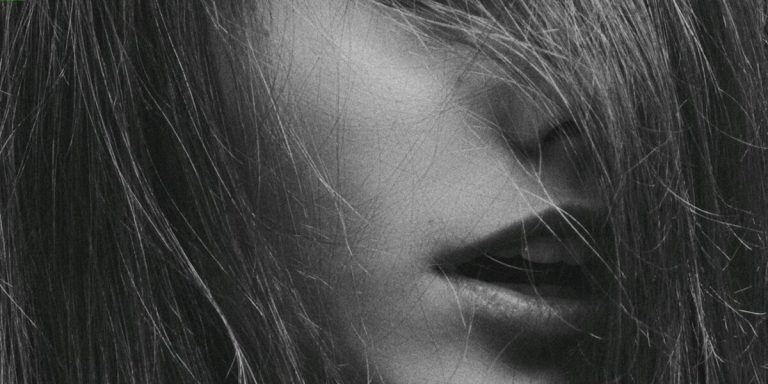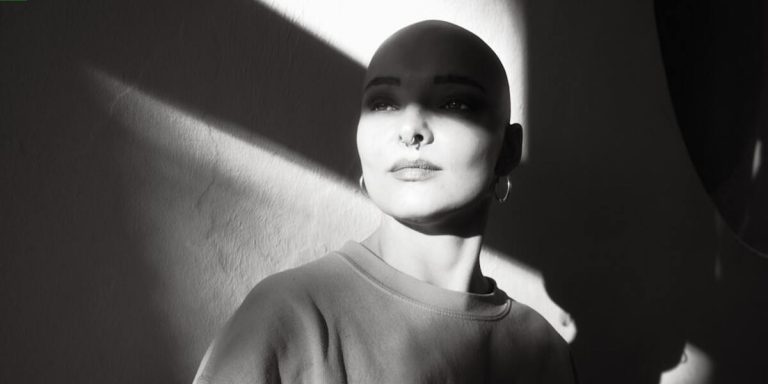Can Trazodone Cause Hair Loss? A Comprehensive Exploration
In recent times, one topic that has gained an increased amount of interest is whether or not certain medications, specifically Trazodone, can contribute to hair loss. As a medication primarily prescribed for depression and anxiety disorders among other mental health conditions, the question “Can trazodone cause hair loss?” becomes pertinent especially when trying to strike a balance between managing these health issues and maintaining healthy hair.
This blog post aims at conducting a comprehensive exploration into this subject matter by sifting through scientific literature on Trazadone side effects related to our crucial concern – hair loss. Our objective remains analyzing if there’s any verifiable connection between its consumption and potential unwanted fallout in terms of your crowning glory – the locks you cherish so dearly!
Did you know?
While Trazodone is primarily used to treat depression, evidence from medical reports illustrate that prolonged use of this drug can potentially lead to telogen effluvium – a scalp disorder characterized by the thinning or shedding of hair.
Understanding Trazodone: Examining Potential Side Effects
Trazodone is a common medication, primarily used to manage depression and anxiety. But like most pharmaceuticals, it’s potential side effects cannot be overlooked. One such area of concern that continues to crop up in health forums worldwide involves the possibility of hair loss attributed to antidepressants like Trazodone.
While medical literature hasn’t definitively established a direct link between trazodone usage and hair shedding, instances are reported where patients have experienced significant alterations in their hair growth cycle after starting on this drug therapy regimen Here comes into play one critical factor – everyone’s body reacts differently to medications; what may cause no noticeable changes for some might lead others down an unfortunate path toward thinning locks or even bald patches.
However, correlation does not necessarily imply causation – i.e., just because you’re taking Trazodone doesn’t automatically mean you’ll experience hair loss. It’s essential always keep open lines communication with your healthcare provider if any concerns arise about new symptoms while undergoing treatment with any medication.
Investigating the Link Between Trazodone and Hair Loss
Trazodone, a commonly prescribed antidepressant medication, is often scrutinized for its potential side effects. One that consistently draws attention is hair loss. Can trazodone cause hair loss?
Let’s delve deep into the scientific evidence and case studies to find out.
Research primarily suggests Trazodone-induced alopecia could occur in rare instances due to changes in hormonal balance or potential allergic reactions. A 2003 study published in ‘Archives of Internal Medicine’ reported isolated cases where patients experienced significant thinning after regular use of Trazodone.
In addition, online communities provide anecdotal accounts from individuals linking their unexplained hair loss with Trazodone usage . While these reports are not scientifically vetted, they contribute critical testimonials increasing awareness about this less-explored correlation.
The mechanism behind possible drug-induced alopecia remains unclear; however, some scientists associate it with telogen effluvium —a scalp disorder leading to premature shedding— triggered by physical stressors like illness or trauma which can include drastic hormonal shifts caused by certain medications including possibly even trazadon.
Suppose you’re taking Trazadone and notice considerable hair fall – what should you do next? First off- don’t panic , stressing over it might exacerbate the condition! Firstly consult your healthcare provider before making any decisions regarding your medication regime as abruptly stopping them may have severe consequences such as withdrawal symptoms .
Assessing Medication-Induced Alopecia in Prescription Drugs
Hair loss, scientifically termed as alopecia, is a condition that millions of people worldwide combat every day. One surprising factor contributing to this issue could be the prescription drugs we often take for other health conditions. When it comes to medication-induced hair loss or ‘drug-induced alopecia’, understanding how and why it happens exploits our ability to manage and minimize its effects.
Trazodone stands out because of recent studies suggesting it’s potential in causing hair loss among users. By incorporating insights from medical researchers into tangible advice for consumers like you, let’s delve deeper into assessing whether Trazodone can cause hair loss.
Firstly, noting what trazodone is essential – an antidepressant typically prescribed by doctors to treat depression symptoms by balancing chemicals in the brain associated with mood swings. However acclaimed its benefits are though, there isn’t any denial over side-effects potentially emerging from long-term usage – one prominent example being hair loss.
Therefore arises the pivotal question: Can trazodone cause hair loss?
The answer lies at ‘yes’. In several anecdotal evidences across scientific communities shows instances where users noticed significant thinning or balding after extending their course of medicine intake beyond short terms.
The Science of Hair Loss: Identifying Contributing Factors
The scientific community has long been intrigued by the mysteries of hair loss, leading to extensive research into its contributing factors. One such factor that has gained significant attention recently is the impact of certain medications on our bodily processes – specifically, whether trazodone can provoke an increased rate of hair loss.
Trazodone, a commonly prescribed antidepressant that aids sleep and reduces anxiety levels, may seem innocent at first glance. However, as with all potent pharmaceuticals in today’s market, it carries potential side effects—one of which is alopecia or hair loss. The medicine’s role in causing these unwanted physical changes contributes to broader medical discussions about the topic given the importance of maintaining mental wellness during this time period.
Not all trazodone users will suffer from thinning hair or sudden bald patches, but researchers believe there is enough evidence to suggest that those prone to male or female-pattern baldness might experience an accelerated process if they use the drug consistently for long periods. Ongoing studies aim to provide conclusive results; meanwhile, doctors should prescribe trazodone with caution, particularly to patients with a family history of early hair loss.
Evaluating the Role of Antidepressants in Hair Thinning
In the realm of hair loss causes, medication is often overlooked. Yet it can play a significant role in this issue. Among these medications, antidepressants come under scrutiny frequently as potential culprits for thinning tresses.
Trazodone, an antidepressant primarily used to treat major depressive disorder and anxiety disorders, is one such drug that raises questions about its link with hair loss. Researchers have been debating over “Can trazodone cause hair loss?” The truth lies somewhere in between definite yes and no.
Being on the lookout for side effects or changes when starting any new medication like Trazodone has become important than ever before.
Even though there are anecdotal reports suggesting that some users undergoing treatment with Trazodone experience noticeable thinning or shedding of their strands; however concrete scientific evidence linking Trazodone directly to scalp deplumation does not exist at present since most studies do not highlight ‘hair fall’ as a commonly reported side effect.
Interestingly enough there’s more: Hair health could also be indirectly affected by factors other than medication itself – stress from medical conditions being treated (like depression), inadequate nutrition due to poor appetite common among people using certain drugs may contribute significantly too.
Hormonal Imbalance and Stress as Catalysts for Losing Hair
In the intricate world of our bodies, everything is interconnected. Hormones are key players in regulation and imbalance can lead to unexpected consequences—hair loss being one such instance.
Too much or too little thyroid hormone, for example, can contribute significantly to losing hair. An overactive (hyperthyroidism) or underactive (hypothyroidism) gland upsets your body’s natural balance causing strands to weaken and fall out prematurely.
But hormones aren’t solitary actors on this stage; stress often takes center stage when discussing causes of hair loss. You may have heard about worry leading to greying strands but it’s more menacing than that – prolonged periods of elevated stress levels disrupt normal growth cycles resulting not just in grey hairs but no hairs at all!
An interesting study uncovered an alarming discovery regarding medication-induced stressful events contributing toward premature balding symptoms. The drug trazodone – generally prescribed as an anti-depressant has been questioned: “can trazodone cause hair loss?” Indeed scientific evidence suggests its potential role against maintaining luscious locks inviting us into deeper exploration.
Addressing and Managing Drug-Related Hair Loss
Today, prescription medications are integral to managing various health conditions. However, some of these drugs bring potential side effects that can be as distressing as the maladies they intend to treat. One such medication is Trazodone – an antidepressant often linked with hair loss instances in numerous patients.
Trazodone works by increasing your brain’s serotonin levels – a neurotransmitter essential for mood regulation. While it proves effective in combatting depression symptoms and occasionally used off-label for insomnia treatment, its relationship with hair loss continues undisputed into 2023.
Addressing this form of drug-related hair loss requires understanding why it happens. Changes introduced by trazodone consumption might disrupt your body’s natural cycle of growing and shedding hair strands resulting in noticeable thinning or bald patches over time. Managing this condition effectively involves consulting professionals who could suggest alternate treatments or lifestyle adjustments limiting further damage while maintaining mental wellness outcomes.
Remember though changes may look alarming, experts assure us that most cases revert once medicine course completes or dosage lowers under medical supervision- providing hope amidst concern about one’s physical appearance due their struggle against mental ailments.
Strategies for Mitigating Trazodone’s Impact on Scalp Health
Understanding the possible side effects of medications is a critical step in managing your overall health. One such medication, Trazodone – most often prescribed as an antidepressant or sleep aid, has been associated with hair loss among certain users.
Before panic sets in and you decide to stop using trazodone completely due to fears of losing more hair, it’s crucial to note that not all individuals who take this drug will experience this specific side effect. Nonetheless, if you’ve noticed changes since starting treatment involving trazodone and suspect it might be behind your thinning locks, there are some steps that can be taken for mitigating its potential impact on scalp health.
Alternative Treatments to Counteract Pharmaceutical Side Effects
As we delve into the nuances of drug-related hair loss, it’s crucial to shine light on alternative treatments that can help counteract these pharmaceutical side effects. If you’ve been contemplating whether ‘can trazodone cause hair loss’, then this section is for you.
Trazodone, a commonly prescribed antidepressant medication has some unwanted side-effects – one being potential hair loss. While not everyone experiences this setback while consuming Trazodone, if you’re among those who do or are concerned about the possibility of it happening in your case too; worry not! There exist several natural alternatives and lifestyle changes which can aid in managing and mitigating these adverse effects.
Exercise regularly: Regular physical exercise improves blood circulation all over your body including scalp thus promoting healthy follicle growth and preventing excessive shedding due to stress or hormonal imbalances often caused by medications like Trazadone.
Maintain balanced diet: Ensuring consumption of a varied diet rich in vitamins A,E,K,B complex as well as protein sources aids effective absorption needed for optimal conditioning and maintaining density of strands . These nutrients also support hair repair helping overcome negative side-effects from medications such as Trazodone which might disrupt normal function leading way towards thinning down above our heads .
Conclusion
So, can Trazodone cause hair loss? The answer isn’t a simple yes or no. Like many medications, there are potential side effects and everyone reacts differently.
Some people may experience thinning strands while others don’t notice any changes in their tresses at all. Always remember that before you decide to adopt or discard any medication out of fear for your locks, it’s crucial to talk with your healthcare provider about the possible impacts on your overall health.
Our website offers an abundance of information around ‘Hair Loss Causes’. We dive into every topic from genetic factors to dietary habits and even explore the connection between various pharmaceuticals like Trazodone and hair loss. Don’t let uncertainty keep you up at night – check out our informative articles that unpick these complex issues piece by piece!







